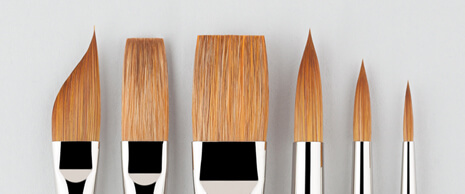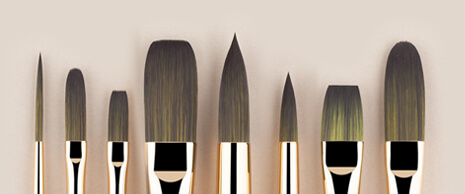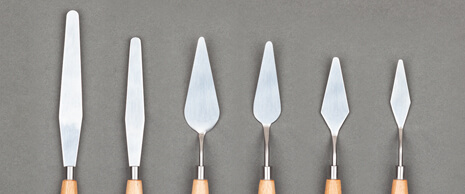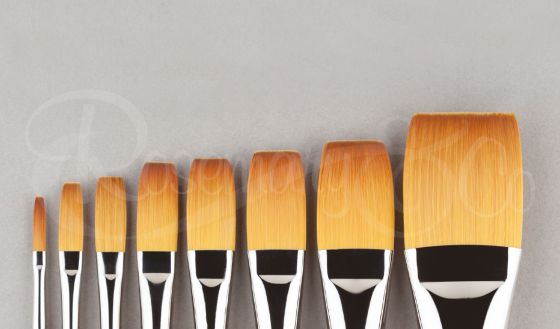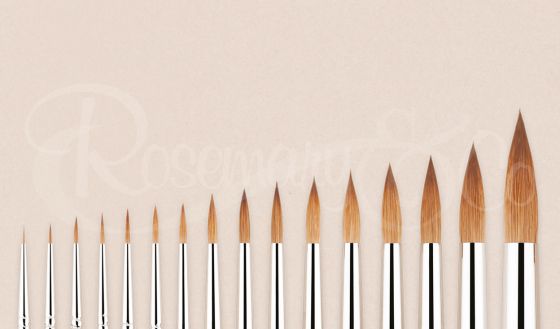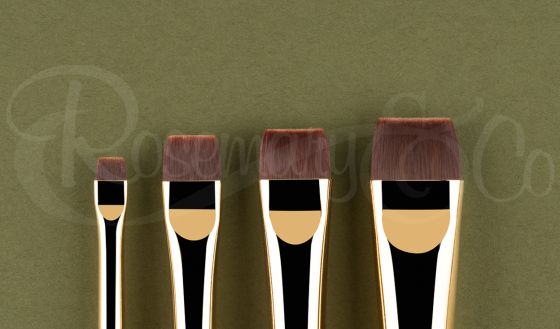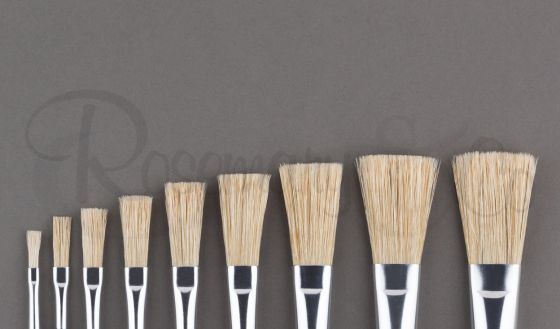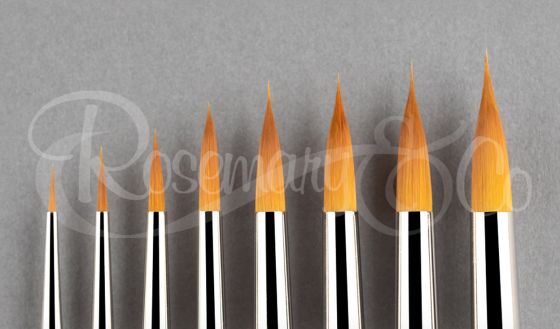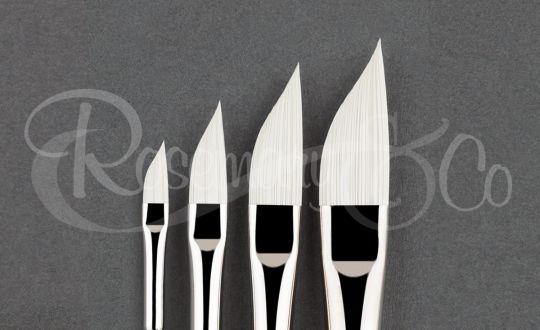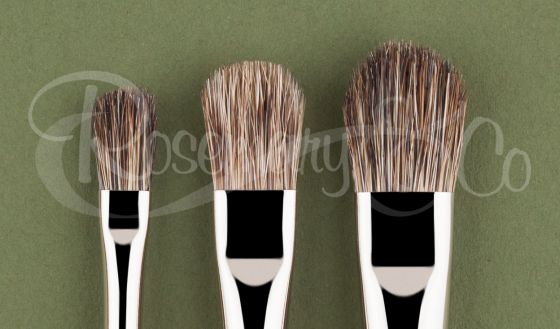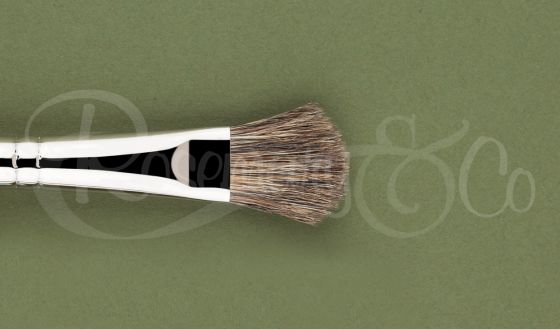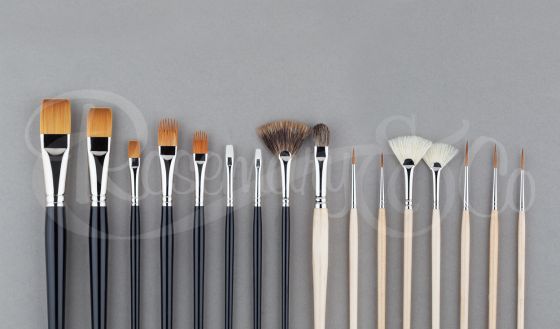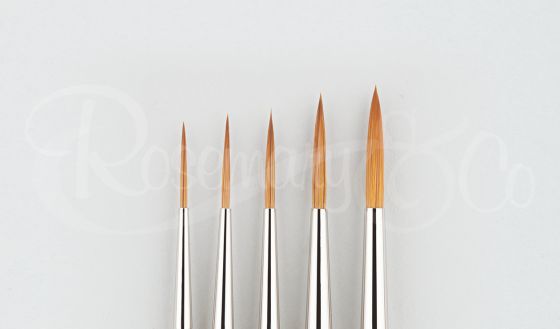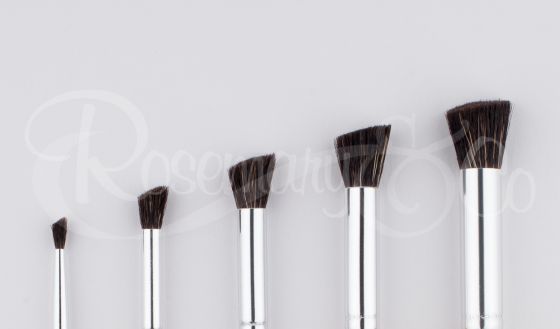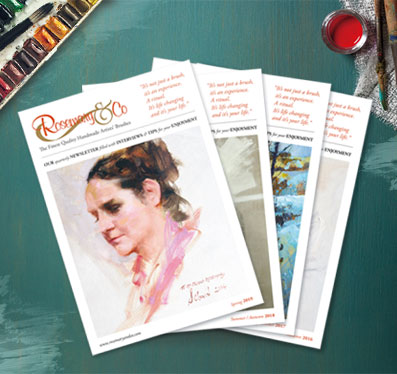This is a Sable brush with unique properties which can be used a tool for painting winter and summer trees. The concept is that the bristles are equal length and constructed into a circular form so that the paint pigment can be used as a drybrush technique or used with fairly wet pigment washes to paint summer trees. Using each technique, the brush is rotated, to release the pigment onto the paper.
For many of us achieving a special effect i.e foliage on trees can prove difficult. The hollow centre, unusual in design makes trees 'appear' before your eyes.
"The concept of the brush is that all the bristles are level and are splayedin a circular form. The pigment is taken up on the tips of the bristles and transferred to the paper by holding the brush at 45 degrees before gentlytransferring the pigment in the form of an arc to produce the shape of the tree, turning the brush as you proceed. I find that when I do a workshopthat the participants generally place the brush directly onto the paper, when I explain and they understand the concept they produce some lovely work.
I always tilt the brush at 45 degrees away from me turning the brush with it lifted off the paper. You have to do this fairly swiftly so that with each arc you have produced the effect may represent at least 12 up and down strokes onto the paper. If the wash becomes too dry simply at one drop of water from the tip of the handle of the brush to revive it. Remember with the winter trees to use the wash very dry but with summer trees the washes can be quite wet. By using different pigments premixed you can create a beautiful summer tree. Suggested washes - lemon yellow, sap green and a mixture of viridian and Payne's grey for the shadows."
This is a brush with unique properties which can be used as a tool for painting winter and summer trees. The concept is that the bristles are equal length and constructed into a circular form so that the paint pigment can be used as a dry brush technique or used with fairly wet pigment washes to paint summer trees. Using each technique, the brush is rotated, to release the pigment at an angle of approximately 45° onto the surface of the paper.
The basic structure of the tree is drawn faintly with a pencil to construct the trunk and main branches. A wash is prepared with minimal water content, as is used in a dry-brush technique.
The brush is placed directly onto this mix so that individual bristles pick up particles of the paint. The concept of the brush is that all the bristles are level and are splayed in a circular form. The pigment is taken up on the tips of the bristles and transferred to the paper by holding the brush at 45 degrees before gently transferring the pigment in the form of an arc to produce the shape of the tree, turning the brush as you proceed. Tilt the brush at 45 degrees away from you, turning the brush with it lifted off the paper. You have to do this fairly swiftly so that with each arc you have produced the effect may represent at least 12 up and down strokes onto the paper. If the wash becomes too thy simply add one drop of water from the tip of the handle of the brush to revive it. Within a few minutes, the overall shape of the tree is established. The peripheral branches can then be painted to support the shapes already created. A final light wash of Indian Red can then be applied to each arc and the paint dragged in with the finger towards the centre of the arc.
This brush can also be used to paint summer trees. Assuming a tree is being painted with the light approaching from the left-hand side of the painting to shadow on the right-hand side of the tree. Using a number of different pre-mixed washes (Suggested
washes - lemon yellow, sap green and a mixture of viridian and Payne’s grey for the shadows.) Each wash is applied from light to dark, rotating the brush to give a very natural effect to simulate how the tree looks in nature. The use of this technique exercising minimal effort by the painter assures exceptional results on each occasion the brush is used. By using different pigments premixed of your own choice, you can create a beautiful summer tree.
Remember with the winter trees to use the wash very dry but with summer trees the washes should be quite wet.
The Rotary Tree Brush was designed by Tony Cowlishaw
(Resident Artist of English Watercolours) Tel: 0115 9253976



